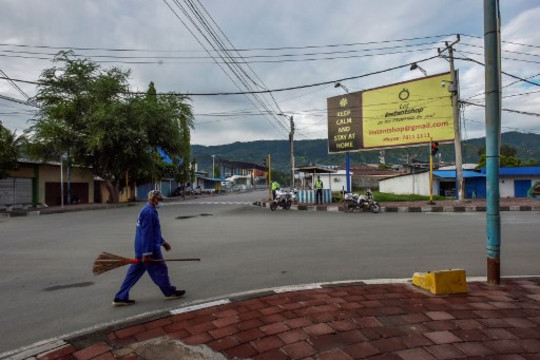The President of Timor Leste Francisco Guterres Lu Olo declared a national emergency on Friday, March 27. Since Monday, April 1, all activities in the capital city of Dili have been significantly reduced in an effort to prevent the spread of Covid-19.
Several printed media outlets have reportedly cut workers’ salaries, as media companies face a steep decline in revenue. The decision also affects correspondents in regional areas, with newspapers focusing on stories in the capital.
Even before the pandemic, journalists in Timor Leste struggled to make a living because of wage pressures. On average, journalists receive around USD 150 per month which is insufficient to make a decent living and provide for a family.
The South East Asia Media Freedom Report 2019 revealed that the key safety threats for journalists in Timor Leste are poor wages and deteriorating working conditions. This results in journalists being forced to take on work after hours to supplement their income. It also affects their professionalism and independence, as journalists are more likely to be paid by sources for their services. The lack of decent wages and associated benefits continues to discourage and undermine good journalism in the country.
As of April 14, Timor Leste has confirmed 18 positive cases of Covid-19. Around 570 people are still in isolation.
The chairman of TLPU, Manuel Pinto, has asked media owners to review their decision to cut journalist salaries. “Actually, in such a situation journalists' salaries must be increased rather than cut because journalists are on the front line in the fight to overcome this pandemic,” Pinto added.
The IFJ said: “IFJ is disappointed with the decision to reduce the salaries of journalists at a time when high quality reporting in vital. The IFJ urges media proprietors to review their decision, prioritising workers’ rights and safety in this health crisis.”

